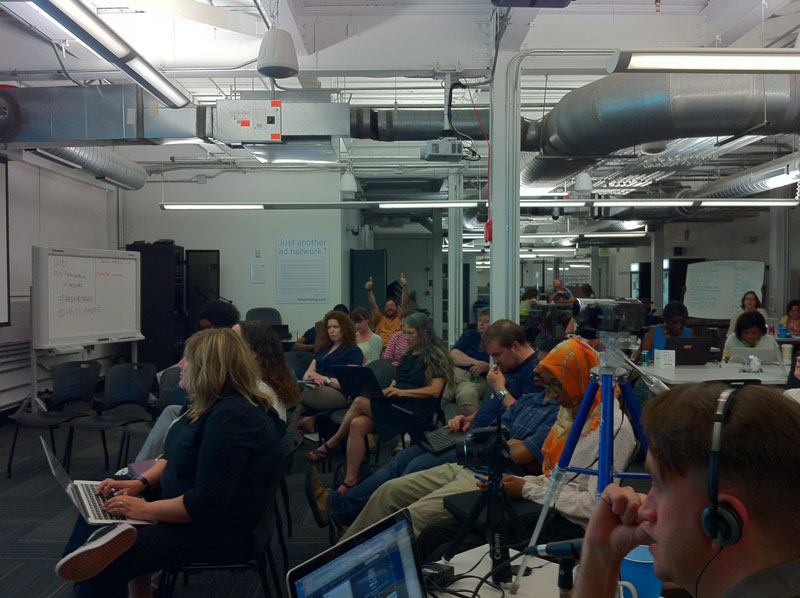Baltimore hosted its first Hack for Change civic-hacking event in June in conjunction with the inaugural National Day of Civic Hacking. From a weekend-long event came 10 apps and projects, all constructed with the intent of making city services more efficient, city government data more accessible or the machinations of city government more transparent.
The city is now accepting proposals from outside groups to organize three, city-sponsored hackathons in 2014. With that in mind, Technical.ly Baltimore decided to assess where each of the 10 Hack for Change projects are now.
- Baltimore Vacants (received a $250 award), an interactive map of vacant properties in Baltimore, pulled from the vacant properties data set available on the OpenBaltimore data site. Status: Up and running.
- Baltimore City Property Tax Map (received a $250 award), an interactive map of the city’s property tax data, including how much individual households pay in property taxes each year. Status: Up and running.
- EZ Resume (received a $500 award) is a free resume-builder site for users with limited computer skills. Status: Still in development, according to Kate Bladow, who worked on the EZ Resume team. “We should have it released in the near future,” she said via e-mail.
- CodeForSex (received a $500 award) is a website and texting service that allows people who have taken an STD test to receive their results electronically, saving them a visit to a clinic. Status: Still in development, according to Jessica Ladd, who worked on the CodeForSex team with employees from the Baltimore City Health Department. “We’ve gotten a lot of feedback from the city health department staff on the prototype, and we’ve been iterating it,” Ladd said via e-mail. “We’re waiting on a contract from the Baltimore City HD before finishing it up and implementing it. It’s looking very likely.”
- AppsForBaltimore is a website that lets people upload the civic applications available for Baltimoreans. Status: Up and running, but just two civic apps have been uploaded.
- Baltimore Decoded is Baltimore’s city charter boiled down into XML, easy-to-read format. Status: Up and running as of July, the website is maintained and updated by the Mayor’s Office of Information Technology.
- Walk and Talk Baltimore is a customizable visualization that uses crowdsourcing as the means to map community resources for health in East Baltimore. Status: Up and running, although the map is scant, and the community resources included on the map are mainly youth centers and schools, not health centers.
- Sheltr Baltimore was intended as a replica of Sheltr Philly, a map of homeless services and resources. Status: Nonexistent as a web app, but an Android version called BMoreSheltr was produced by students at the Johns Hopkins University HopHacks hackathon in September.
- Open Plane Big Data pulls available data from the Federal Aviation Administration to make a real-time display of flight information for different airlines. Status: Nonexistent.
- SDAT Property Data Search was conceived as a new search display that would mix Maryland state property records with Baltimore city property tax data, geolocation data and Census data. Status: Nonexistent.
To view more information on the projects submitted for judging at June’s Hack for Change hackathon, visit the ChallengePost page here.







